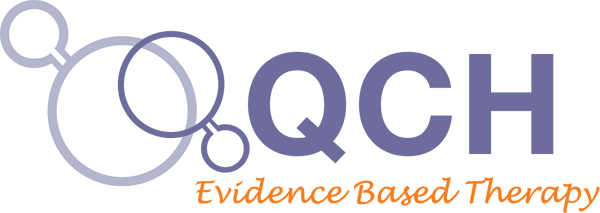What is Cognitive Hypnotherapy in Leighton Buzzard?
Do you wish you were more in control of your own mind?
Ever feel you're going in circles? You know the problem, but fail to change things?
You know what you need to do. But everything's an uphill struggle. You make headway for a while, but something always happens. Back to square one.
Sound familiar? Cognitive Hypnotherapy can help you.
“The scientist in me is still a sceptic. I can’t explain it, I’ve not read enough papers to convince me. But what I do know is it worked for me where CBT only scratched the surface.”
“What I really liked about working with David is that it was all about me - I have been through CBT therapy with the NHS, and that is very much a set path of tasks and homework. David created the programme around me, I was able to talk openly and frankly about things I didn’t even realise I had issues with and in turn David helped me to work through them.”
A modern approach
Cognitive Hypnotherapy is a revolutionary, science-based and research-backed therapy. With its roots in in modern neuroscience and the latest understanding of the mind-body connection.
Classed as a solution-focused brief therapy, it means we help you change things for the better. Powerfully and efficiently. By the shortest route, and at your pace.
Our models are based on Evolutionary Psychology and Positive Psychology. With techniques from various disciplines. Such as Clinical Hypnotherapy and regression work, Neuro-Linguistic Programming (NLP), Cognitive Behavioural Therapy (CBT), Emotional Freedom Technique (EFT), and Life Coaching.
Not all therapies were created equally
Cognitive Hypnotherapy is based on the original ethos of Neuro-Linguistic Programming (NLP). Which means we draw on the best ideas from various approaches and incorporate them.
Clinical Hypnotherapy tells us that trance states can be used for powerful change. By using the power of language and your imagination. But we don't use pre-written scripts.
Using a technique called Wordweaving, we tailor the language specifically to you. And we don't believe you need a long induction to create 'deep trance' to make change possible. Everything's done conversationally.
Cognitive Behavioural Therapy tells us behaviour affects how you feel about yourself. That you can interrupt patterns once you're aware of them. But we don't believe conscious thoughts are the sole driver of feelings.
Ever felt uncomfortable as you walked into a room? Or met someone you instantly disliked? A part of your not-conscious brain made a 'pattern match' causing those feelings. So we don't just address the symptoms. We work with your unconscious to deal with problems at the root.
Counselling and Psychodynamic Therapy bring benefit through being listened to. And research shows talking things through creates perspective. But talking only gets you so far.
The neuro-chemical relief from being understood doesn't stop the pain recurring. Which means revisiting the same themes, over and over. So we go a step further. By making changes at the unconscious level. Helping you change those patterns because you perceive things differently.
Cognitive Hypnotherapy does things differently
Despite its name, Cognitive Hypnotherapy isn't about being hypnotised. It's about de-hypnotising you out of the unhelpful patterns your mind has gotten into.
It's less 'going into a trance', more using the principles of language to shift your mind where we need it to go. Everything's an interaction. It's just another kind of conversation.
We work flexibly because everyone's unique. Sessions are tailored to you. No off-the-shelf scripts. No tick-boxes. We use whatever fits best to help you become the best version of you.
We don't leave you 'managing' the problem. We address the underlying causes. Which means making your brain work for you, rather than against you.
Two sides to the coin
Most of the time you're on autopilot. Your unconscious runs the show. Research even shows your decisions are actually made unconsciously. You just rationalise them afterwards. And this can be a good thing.
Remember learning to drive? Ride a bike? Try to keep conscious focus on every movement and you'll get tired fast. This explains why it takes a while to 'pick things up'. But once you do, you literally don't have to think about it.
You're not consciously in the driving seat.
With Cognitive Hypnotherapy, we work with both parts of your mind: the conscious and unconscious. Understanding yourself consciously is important. But so is the ability to change your unconscious emotional responses. Because that's what pulls you in the direction you end up. (Whether you want it or not).
This is conversational therapy. But it's much more than just talking.
Strictly no watch-swinging
We believe trance is a normal, everyday occurrence. Not a special state. I'll show you what I mean. Answer me this: what's the colour of your front door? Think about it now.
Got it? Excellent! That's a trance. A mini-trance, if you like. But still a trance. To think about your door, you have to 'go inside'. And we do this all day, every day.
Ever zoned out during a conversation? Arrived somewhere in the car and forgot how you got there? Maybe you get absorbed in books or films and don't hear those who call you.
All those are trances. And that's the level we work at with Cognitive Hypnotherapy. Using your natural trance abilities you use every day. It's something everyone does. And it's completely safe when you do.
There's nobody quite like you
We're all unique. We hear it said a lot, and it's true. No single way of anything is right for everyone. And therapy is no different. So we work under that premise. Because nothing works on everybody, but everybody can work with something.
Sometimes nail-biting is just nail-biting. And other times it's a comfort-blanket for anxiety. Or self-distraction. So we don't use labels.
Unlike other therapies, we don't have a specific protocol for anxiety, because it wouldn't make sense. One person's experience of depression can be entirely different to another.
We start with you. How your issue affects you. And how you'll know you're getting better. Then we tailor our work to you. You are not a tick-box exercise.
Your brain is plastic
Previously, it was thought we have a 'critical period' in early childhood, after which our brain is permanently 'set'. But new research challenges this.
The new model is neuroplasticity. Essentially, your brain is plastic. Which means you can change your mind. Literally. It's never too late.
Ever believe in Santa Claus or the Tooth Fairy? Felt differently about someone after a while? Change is possible. Once you have the tools and skills to do it.
Keeping the change
Sometimes nail-biting is just nail-biting. And sometimes it isn't. If we just work on the habit, it rarely sticks.
Issues almost always have an emotional root. The issue is usually just a symptom. If you take cough syrup to ease your throat, you still have a cold. Painkillers won't mend a broken leg.
Cognitive Hypnotherapy helps change the problem itself. Not just understand and 'manage' it. And we do this by finding out what's fuelling things. And what's really stopping you move forward.
This way, you keep the changes you make. Because we've addressed the real cause. You don't need painkillers once your leg's re-set and the cast is off.
All behaviour has a purpose
When your brain detects a threat, you experience an 'emotional hijacking'. Blood-flow to your frontal lobes reduces, along with your ability to think clearly. Strong emotion actually makes us less smart.
So you default to unconscious behaviours. The fight-flight response kicks in. And for good reason. We evolved to react quicker. You're not left pondering whether that bounding, big-toothed lion is hungry or just pleased to see you. Those who did, way-back-when, got eaten.
Your brain is trying to protect you. And this makes sense in a survival context. But sometimes the thing it's protecting you from isn't actually threatening.
So the work we do re-educates your brain. So you feel safe when it's ok to feel safe. Instead of reacting to out-dated rules and experiences.
Tried and tested
Cognitive Hypnotherapy is a research-backed and evidence-based approach.
A research project measuring the effectiveness of Cognitive Hypnotherapy for treatment of depression and anxiety found 71% of participants considered themselves recovered after an average of 4 sessions.
Participants were assessed using the same outcome measures of NHS talking therapies. This compares to 42% for other therapies, like Cognitive Behavioural Therapy (CBT).
To date, Cognitive Hypnotherapy is the only known hypnotherapy approach validated this way.
The pilot study was published in the Mental Health Review Journal in 2015. It is also listed on the NICE website.






